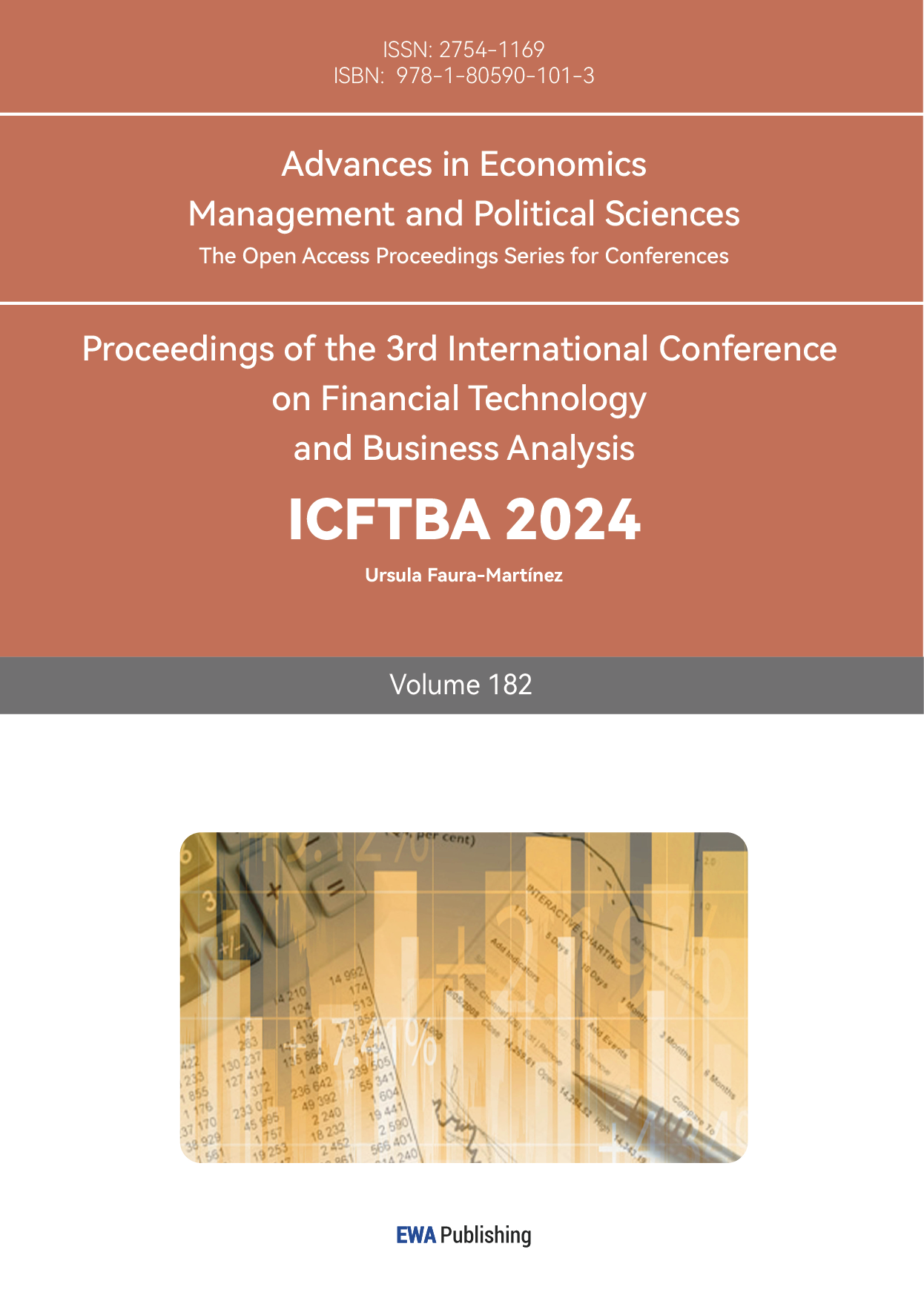References
[1]. Zhang, L., & Song, H. (2014). The Chinese Dream: A New Strategy for National Development. Journal of Chinese Political Science, 19(1), 23-40.
[2]. “The Power – and Limits – of Xi Jinping.” – The Diplomat, 18 Nov. 2023, thediplomat.com/2023/11/the-power-and-limits-of-xi-jinping/.
[3]. Cheng, L. K., & Zhang, M. (2020). The Impact of the Belt and Road Initiative on Global Trade. World Economy, 43(5), 1139-1163.
[4]. “Redistricting and Congressional Control Following the 2012 Election.” BrennanCenter for Justice, 29 Nov. 2012, www.brennancenter.org/our-work/research-reports/redistricting-and-congressional-control-following-2012-election.
[5]. Gantz, D. A. (2016). The TPP and International Trade Law. In The Trans-Pacific Partnership: A Quest for Global Economic Leadership (pp. 88-112). Cambridge University Press.
[6]. Jiang, Z. (2020). China and the Regional Comprehensive Economic Partnership: Implications for Global Trade. Asian Economic Policy Review, 15(1), 58-77.
[7]. Cheong, D. (2019). The US-China Trade War: A New Cold War? International Journal of Political Economy, 48(3), 65-84.
[8]. “World Economic Situation and Prospects 2012 | DESA Publications.” United Nations, United Nations, 12 Jan. 2012, desapublications.un.org/publications/world-economic-situation-and-prospects-2012.
[9]. Wang, H., & Li, S. (2019). Global Economic Governance and the Repositioning of Global Power: The Case of the US-China Trade War. Global Governance Review, 25(2), 245-268.
[10]. Sarvananthan, Muttukrishna. “Waning Economic Euphoria and the Impending Crisis of Governance.” Groundviews, 16 Jan. 2013, groundviews.org/2013/01/16/waning-economic-euphoria-and-the-impending-crisis-of-governance/.
[11]. Cerutti, Eugenio, et al. “The Impact of US-China Trade Tensions.” IMF, 23 May 2019, www.imf.org/en/Blogs/Articles/2019/05/23/blog-the-impact-of-us-china-trade-tensions.
Cite this article
Wang,Z. (2025). The Impact of Xi Jinping’s Rise to Power and the 2012 American Political Transition on the Global Economy. Advances in Economics, Management and Political Sciences,182,37-42.
Data availability
The datasets used and/or analyzed during the current study will be available from the authors upon reasonable request.
Disclaimer/Publisher's Note
The statements, opinions and data contained in all publications are solely those of the individual author(s) and contributor(s) and not of EWA Publishing and/or the editor(s). EWA Publishing and/or the editor(s) disclaim responsibility for any injury to people or property resulting from any ideas, methods, instructions or products referred to in the content.
About volume
Volume title: Proceedings of the 3rd International Conference on Financial Technology and Business Analysis
© 2024 by the author(s). Licensee EWA Publishing, Oxford, UK. This article is an open access article distributed under the terms and
conditions of the Creative Commons Attribution (CC BY) license. Authors who
publish this series agree to the following terms:
1. Authors retain copyright and grant the series right of first publication with the work simultaneously licensed under a Creative Commons
Attribution License that allows others to share the work with an acknowledgment of the work's authorship and initial publication in this
series.
2. Authors are able to enter into separate, additional contractual arrangements for the non-exclusive distribution of the series's published
version of the work (e.g., post it to an institutional repository or publish it in a book), with an acknowledgment of its initial
publication in this series.
3. Authors are permitted and encouraged to post their work online (e.g., in institutional repositories or on their website) prior to and
during the submission process, as it can lead to productive exchanges, as well as earlier and greater citation of published work (See
Open access policy for details).
References
[1]. Zhang, L., & Song, H. (2014). The Chinese Dream: A New Strategy for National Development. Journal of Chinese Political Science, 19(1), 23-40.
[2]. “The Power – and Limits – of Xi Jinping.” – The Diplomat, 18 Nov. 2023, thediplomat.com/2023/11/the-power-and-limits-of-xi-jinping/.
[3]. Cheng, L. K., & Zhang, M. (2020). The Impact of the Belt and Road Initiative on Global Trade. World Economy, 43(5), 1139-1163.
[4]. “Redistricting and Congressional Control Following the 2012 Election.” BrennanCenter for Justice, 29 Nov. 2012, www.brennancenter.org/our-work/research-reports/redistricting-and-congressional-control-following-2012-election.
[5]. Gantz, D. A. (2016). The TPP and International Trade Law. In The Trans-Pacific Partnership: A Quest for Global Economic Leadership (pp. 88-112). Cambridge University Press.
[6]. Jiang, Z. (2020). China and the Regional Comprehensive Economic Partnership: Implications for Global Trade. Asian Economic Policy Review, 15(1), 58-77.
[7]. Cheong, D. (2019). The US-China Trade War: A New Cold War? International Journal of Political Economy, 48(3), 65-84.
[8]. “World Economic Situation and Prospects 2012 | DESA Publications.” United Nations, United Nations, 12 Jan. 2012, desapublications.un.org/publications/world-economic-situation-and-prospects-2012.
[9]. Wang, H., & Li, S. (2019). Global Economic Governance and the Repositioning of Global Power: The Case of the US-China Trade War. Global Governance Review, 25(2), 245-268.
[10]. Sarvananthan, Muttukrishna. “Waning Economic Euphoria and the Impending Crisis of Governance.” Groundviews, 16 Jan. 2013, groundviews.org/2013/01/16/waning-economic-euphoria-and-the-impending-crisis-of-governance/.
[11]. Cerutti, Eugenio, et al. “The Impact of US-China Trade Tensions.” IMF, 23 May 2019, www.imf.org/en/Blogs/Articles/2019/05/23/blog-the-impact-of-us-china-trade-tensions.









